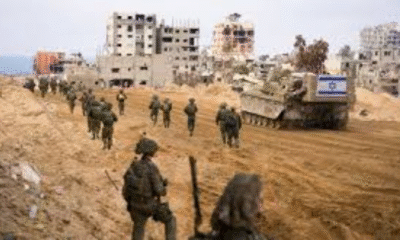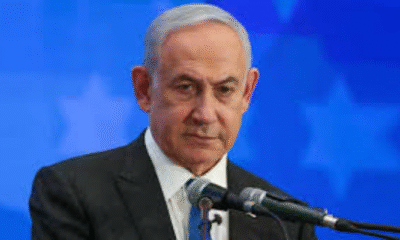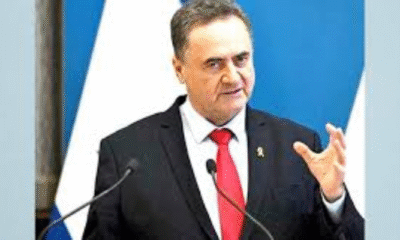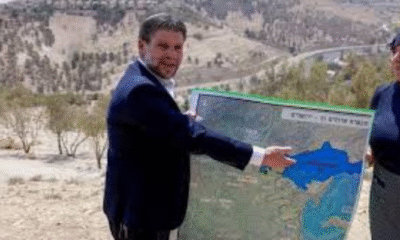International
100,000 Reservists Stay Away as Gaza Conflict Batters Israeli Troop Morale

TEL AVIV, Aug — The ongoing war in Gaza is taking a severe toll on the mental health of Israeli soldiers, with suicide rates climbing sharply, experts say. They cite prolonged psychological stress, post-traumatic stress disorder (PTSD), and “moral injury” from involvement in or witnessing violence against civilians as key drivers of the crisis.
Between 2023 and mid-2025, around 50 soldiers died by suicide — up from 11 in 2021 and 14 in 2022. Military data shows that from October to December 2023 alone, 28 soldiers took their own lives.
Recent cases include reservist Ariel Meir Taman on July 27 and PTSD-diagnosed Daniel Edri on July 5. Two other soldiers died in what authorities call “suspected suicides” in July, and paratrooper corporal Dan Philipson died after a suicide attempt on July 15.
The crisis is compounded by falling troop return rates: state figures say 80% of reservists have returned to duty, but broadcaster KAN reports the rate is closer to 60%, leaving an estimated 100,000 who have not come back. In April, about 1,000 Air Force personnel urged an end to the war, while over 100 senior officers signed a letter in May branding the campaign a “war crime” and warning of its psychological toll.
Since the war began, nearly 16,000 soldiers have received mental health care and 3,770 have been formally diagnosed with PTSD. Experts warn that moral injury and trauma could trigger an even deeper mental health crisis among the next generation of troops.
According to Palestinian sources, Israel’s Gaza offensive has killed about 60,000 people, including more than 17,000 children, with many survivors severely wounded or maimed — violence that researchers say is central to the breakdown among soldiers.
International
At least 20 killed as bus catches fire in Rajasthan’s Jaisalmer

At least 20 people have been killed after a passenger bus caught fire in Rajasthan’s Jaisalmer district on Tuesday (October 14) afternoon. The bus was travelling from Jaisalmer to Jodhpur when the accident occurred.
Police said the bus, carrying 57 passengers, left Jaisalmer around 3 p.m. Shortly afterward, smoke was seen coming from the rear of the vehicle. The driver stopped the bus on the roadside, but within minutes, flames engulfed the entire bus.
Locals rushed to help the passengers and informed the fire brigade and police, who later brought the blaze under control. Initial investigations suggest that an electrical short circuit may have triggered the fire.
Fifteen passengers, including four women and two children, sustained severe burns, with some suffering burns over 70% of their bodies. The injured were taken to Jaisalmer’s Jawahar Hospital and later shifted to Jodhpur for advanced treatment.
District authorities launched an immediate rescue and relief operation. Officials confirmed that the bus was completely gutted, making it difficult to identify many of the victims. DNA and forensic teams from Jodhpur have been deployed to assist with the identification process.
Rajasthan Chief Minister Bhajan Lal Sharma visited Jaisalmer late Tuesday night. Indian Prime Minister Narendra Modi expressed his condolences and announced financial aid of ₹2 lakh each for the families of those killed.
(Source: NDTV)
International
Trump Hails Gaza Ceasefire as ‘A Day No One Thought Possible’
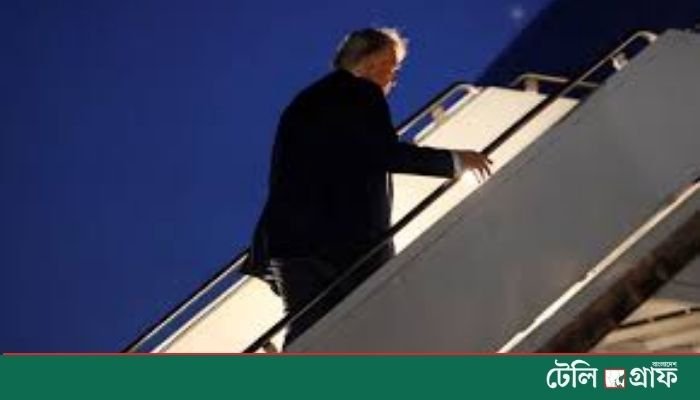
U.S. President Donald Trump has described the Gaza ceasefire agreement as “an important day,” saying that “no one thought this could ever happen.”
He made the remarks aboard Air Force One while returning to Washington after visits to Israel and Egypt.
When asked by reporters whether the ceasefire signaled the return of peace in the Middle East, Trump replied, “Some support a one-state solution, others want a two-state solution — we’ll have to see what happens.” He declined to elaborate further on the issue.
Earlier, at a summit in Sharm el-Sheikh, Egypt, Trump and representatives from 20 nations signed a peace agreement related to Gaza, aiming to pave the way for a lasting ceasefire in the war-torn enclave.
During the flight back to Washington, Trump also commented on Gaza’s future, saying, “I can’t say what will happen, but whoever takes responsibility — I’ll fight for them.”
Later, on his social media platform Truth Social, the former president wrote, “Something extraordinary was achieved today in Israel and Egypt. Much has been done — and I wouldn’t have it any other way. It was an incredible experience!”
Source: BBC Bangla.
International
Jordan’s King Abdullah warns: “Without a Palestinian state, the Middle East will collapse”

Jordan’s King Abdullah II has warned that the Middle East could face destruction if the ongoing peace process does not lead to the creation of an independent Palestinian state.
In an exclusive interview with BBC Panorama ahead of the Sharm el-Sheikh summit in Egypt, King Abdullah called for a renewed commitment to peace, emphasizing that Gaza’s governance should be handed over to an independent Palestinian authority once a ceasefire takes hold.
He said countries like Qatar and Egypt are working closely with the parties involved to ensure compliance with the ceasefire agreement. However, he cautioned that “the devil lies in the details” of the Trump-era peace accords and stressed the importance of continued US engagement in the process.
“The region will collapse if we fail to provide a future for both Israelis and Palestinians,” the King said, adding that the solution must lead toward a two-state outcome.
Referring to Israeli Prime Minister Benjamin Netanyahu, he said he does not trust him personally but believes there are Israelis who genuinely want peace with the Arab world.
Despite criticism at home, the King reaffirmed that Jordan’s 1994 peace treaty with Israel remains crucial, especially in maintaining regional security cooperation.
He concluded, “Peace is the only solution. If we fail to achieve it, this region may cease to exist as we know it.
-

 campus1 day ago
campus1 day agoAfter 36 Years, CU Students Vote in Long-Awaited Central Union Election
-

 EDUCATION1 day ago
EDUCATION1 day agoHSC and Equivalent Exam Results to Be Published on October 16
-

 International2 days ago
International2 days agoJordan’s King Abdullah warns: “Without a Palestinian state, the Middle East will collapse”
-

 Crime and Justice2 days ago
Crime and Justice2 days agoLand dispute turns deadly in Chuadanga: One killed, three injured
-

 International2 days ago
International2 days agoIsrael kills three Palestinians accused of crossing Gaza ceasefire line

